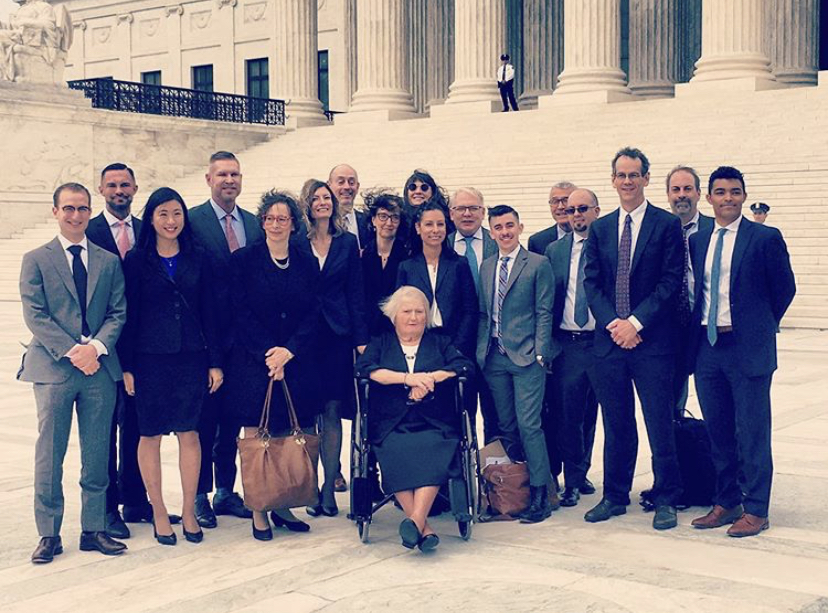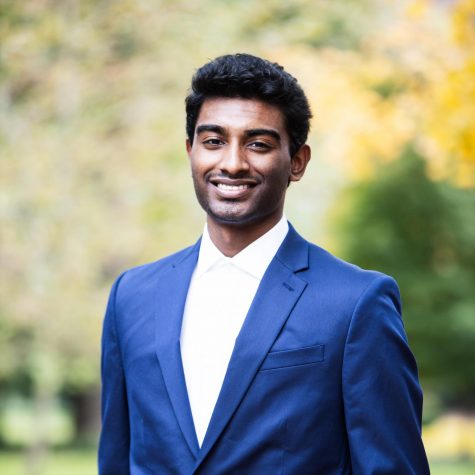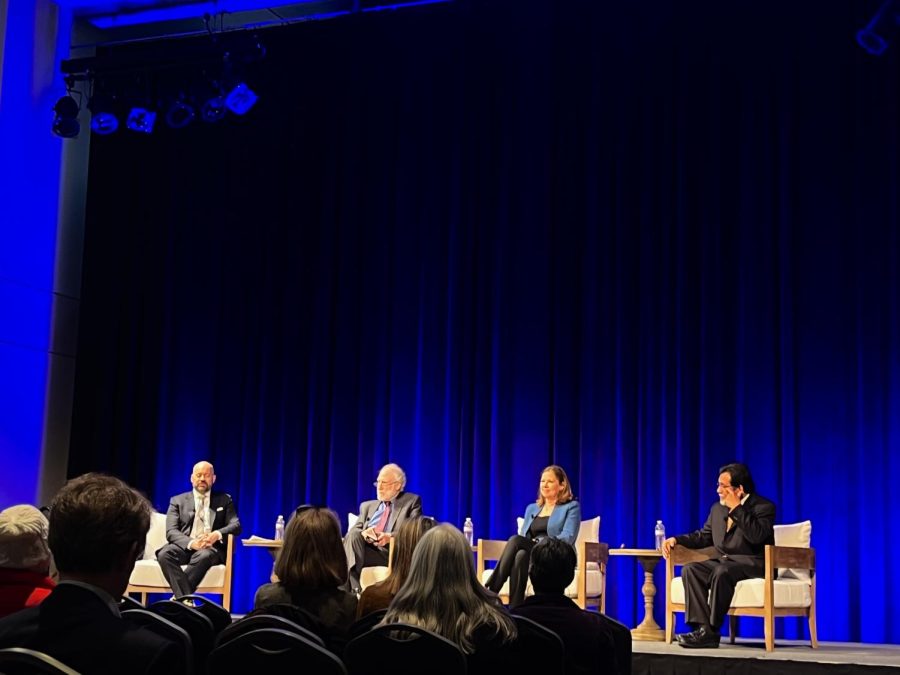Tyler Bishop graduated from Vanderbilt in 2015 where he studied political science, communication studies, and corporate strategy. Subsequently, he received his J.D. from Stanford Law School in 2020. During his time at Vanderbilt, Bishop served as Editor in Chief of The Hustler. At Stanford, he and Stanford Law Professor Pamela Karlan worked on the Altitude Express v. Zarda case with Karlan’s Supreme Court Litigation Clinic. This case, in conjunction with two other cases, resulted in a 6-3 United States Supreme Court Decision in Bostock v. Clayton County in favor of Bishop’s side.
The Hustler spoke with Bishop over a Zoom call June 13 on topics including the Supreme Court decision, the decision’s implications, his Vanderbilt experience and his advice for students who are looking to create social change.
Vanderbilt Hustler: What do you think are the most significant outcomes that will appear from this decision?
Tyler Bishop: There are couple of ways you can look at the outcome of this case. The first way, and the most immediate impact, is that millions of Americans who have lived in fear for a long time that they could lose their livelihood merely for being gay, lesbian, transgender or queer no longer have to live in that fear. The Supreme Court has definitely held that the Civil Rights Act bars that type of discrimination in the workplace.
You can also look at it in a more long term way. The way this court decision could impact the law going forward is that the decision turned on the interpretation of the language: what it means to discriminate against somebody because of sex. That sort of language is used in a lot of different statutes other than Title VII of the Civil Rights Act. So, there will be a lot of litigation going forward to determine whether the mode of interpretation that was used to reach this result in Bostock, Zarda and Harris Funeral Homes, the three cases in this dispute, applies to other statutes.
[At] other places that federal law prohibits sex discrimination, there are likely going to be a lot of claims that the same reasoning in Bostick applies elsewhere. If you go back and read the dissents, that’s one of the fears that a lot of the conservatives on the court had: people would come back and make the same arguments in other statues. That is likely to happen, and it should happen. There are a lot of provisions that have similar language, and as the court explained there is simply no way to discriminate against someone because of their sexual orientation and because of their gender identity without engaging in a form of sex discrimination.
The Court is going to do decide on two cases relating to “ministerial exceptions.” What do you think the outcomes of those cases are going to be? What should they be?
It’s a difficult question, and I think it’s one that was bound to be litigated before this Court. There are several members [of the Court] who are concerned that rules like the one that resulted from this case will lead to people with strongly held religious beliefs feeling like they are being forced to allow people for whom they don’t agree with their lifestyles to be a part of their lives and a part of their workplaces.
The ministerial exception right now has been interpreted very narrowly. The statutory language of Title VII provides for very narrow exceptions, only for instances where that really impacts job function. It’s hard to say whether the courts should or will expand that meaning. Justice Gorsuch’s majority opinion didn’t go into much detail or indicate one way or the other. You can see from some of the language of the dissents that there is a lot of fervor among the conservative members to protect those sorts of interests. I can’t give you an honest assessment because I’m just really not sure.
What was your role on the case?
In this case, it was extremely complicated. The case that I was involved in was called: Altitude Express v. Zarda. That case came to the Supreme Court clinic at Stanford Law School, where I was a student and actually just graduated. While I was there, I was on Professor Pam Karlan’s clinic team, and she worked with the original council on the case to draft and file the briefing before the Court. Ultimately, [she] did the argument back in October of 2019. My role was to help out with both of those processes.
As part of the clinic, I helped to draft the briefing that was submitted to the Court, and I helped the advocate prepare for argument.
What was the general process of preparing for the case?
It’s definitely a lot of work. As the opinion on Monday makes clear, the stakes can be pretty high in these cases for a lot of people. But the process on a granular level, it involves sitting down and strategizing: What are the best arguments to make? What are the strongest arguments? What are the most convincing? What needs to go in this briefing to be put together a case to convince the Supreme Court?. It starts with strategizing, and then it gets into actual drafting.
Looking at other recent SCOTUS decisions, what do you think of the DACA decision?
I didn’t work on this case, so I can speak a little more freely about my own personal opinions about it. I think it’s a big win for the rule of law. The Administrative Procedure Act instructs the federal government exactly how it must act when it wants to change a policy that a previous administration put into place. So in this case, the Obama administration enacted properly promulgated regulations, and unfortunately for the Trump administration, when they decided to rescind that policy, they didn’t do it in accordance with APA. The proper remedy in that situation is to send it to the agency and to say ‘try again.’ That’s what happened here. The result of that is nearly a million Americans will get to maintain their legal status at least until the Trump administration follows the letter of the law in how they rescind it.
Just as a matter of humanity, I think that for young people who were brought here, America is their home and that’s all they’ve ever know. It seems like the correct result for their sake.
What initially piqued your interest in the law and political affairs?
My time at Vanderbilt and after Vanderbilt when I worked at The Atlantic Magazine, [I got] to work at the intersection of race and politics, which led me to do a lot of research and writing about what lawyers and government actors were doing. I got really interested in the structures that empowered those people to make a difference.
Did The Hustler influence your interests and future?
I think that my reporting and my work on the staff of The Hustler definitely piqued my interest in some of these topics, particularly as it pertained to the ways the law treats people unequally. As I learned more about some of the injustices that went on in Nashville, once I graduated from Vanderbilt to move to D.C. in the community there and nationally, time and again I saw and learned that some of the people who are most empowered to make change are those who understand the proper legal structures and the legal remedies that are available to address injustice.
It all started back when my interest in the topic was piqued by doing the reporting, doing the groundwork and learning about some of the problems that people on Vanderbilt’s campus were facing. When I was a senior, the Black Lives Matter movement was just getting started, and it was a lot less politically acceptable to support that sort of movement. There were marches on and around campus, but some of the struggles that are evident on campus today were being protested then as well. It’s encouraging to me to see that students are still paying attention to these things.
What do you suggest for aspiring students who want to make social change in today’s world?
My recommendation is to just start doing things. A lot of people get caught up in figuring out what it is they want to do or where they want to plug in. But I think the only way to figure out if you care about ‘X’, you enjoy doing ‘Y’ or you want to do ‘Z’ is to get out there and start doing that. Whether that means you want to bring to light issues in the community through writing, photography or video, that’s amazing. If you want to become an activist, start plugging into organizations, speaking out and doing whatever you can do for them. If you end up caring about something else, the act of getting involved will help you broaden your horizons.
So I think just doing stuff, don’t get caught up in exactly what you do, by getting out there and by getting out into your communities, well I guess virtual communities during a pandemic, is the best way to go forward.
This article has been edited for brevity and clarity.
















